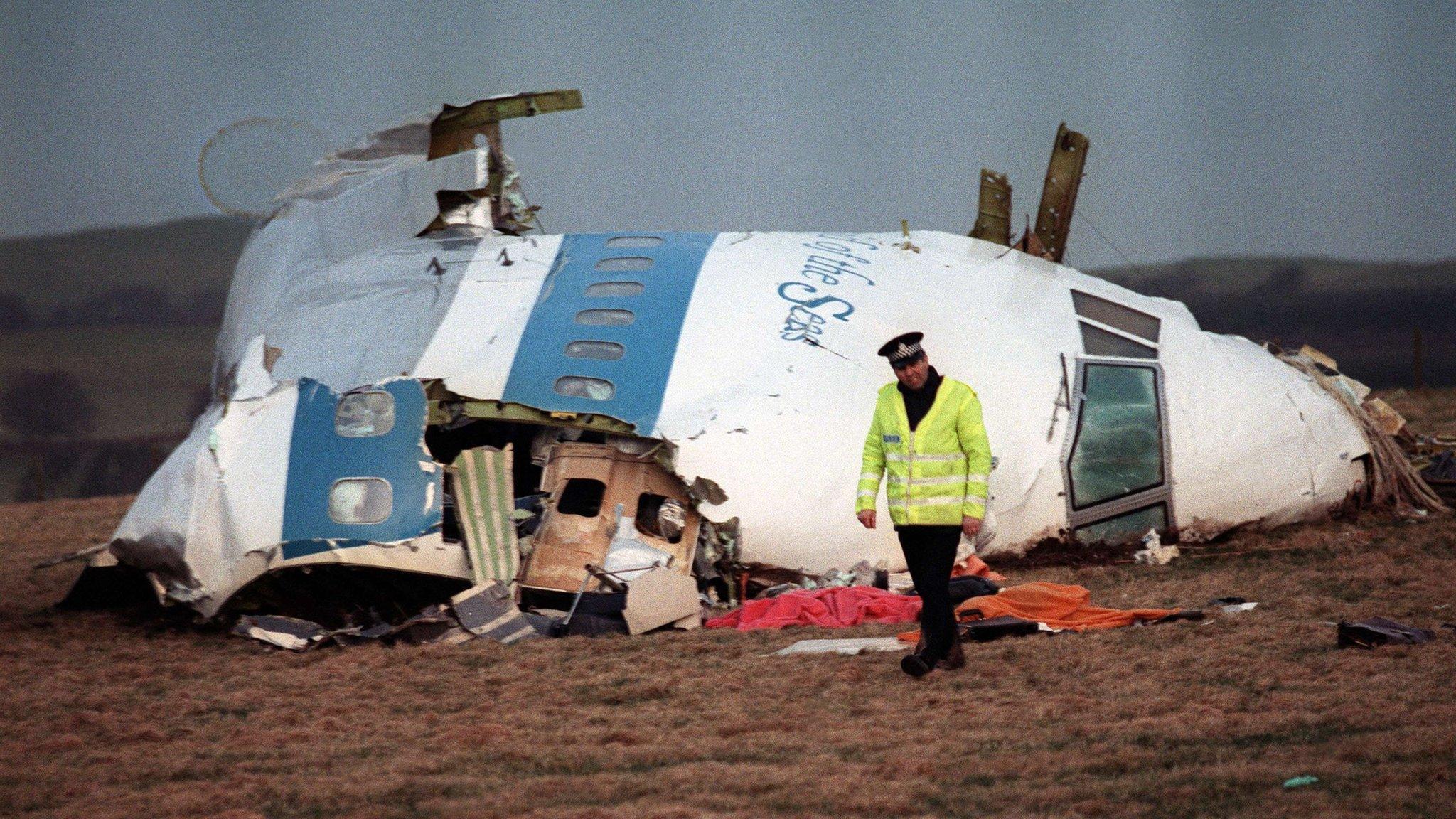Lockerbie: Libya orders probe into suspect handover to US
- Published
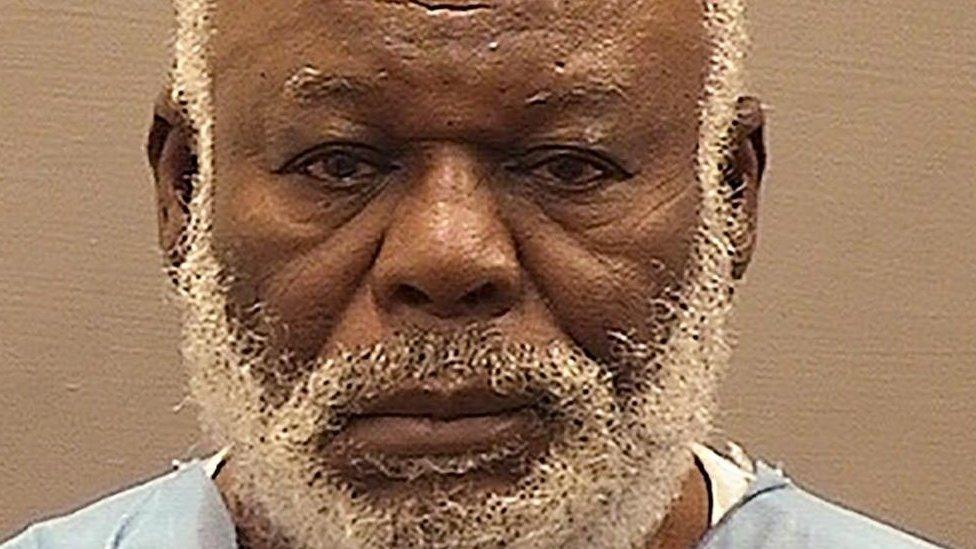
Abu Agila Masud is accused of making the bomb that downed Pan Am flight 103
Libya's top law officer has ordered a probe into the handover of a Lockerbie bombing suspect to the US government.
Abu Agila Masud is accused of making the bomb that downed Pan Am flight 103 over Lockerbie in 1988, killing 270.
Multiple sources have claimed he was abducted from his home in November and held by a second militia group before being transferred to the US.
His family have said they are still in shock after the seizure of the 71-year-old from his Tripoli home last month.
Prosecutors in the US and Scotland have said the transfer was lawful.
However, his family has complained to Libya's attorney general, who has launched an investigation.
Mr Masud's nephew, Abdulmenam Marimi, told Reuters they had been surprised by what had happened and had tried to contact official bodies before then seeing him appear in court in Washington.
"We thought the people who had him were patriotic and it was impossible to transfer him, we were shocked and we still are," he said.
"All of the family is impacted."
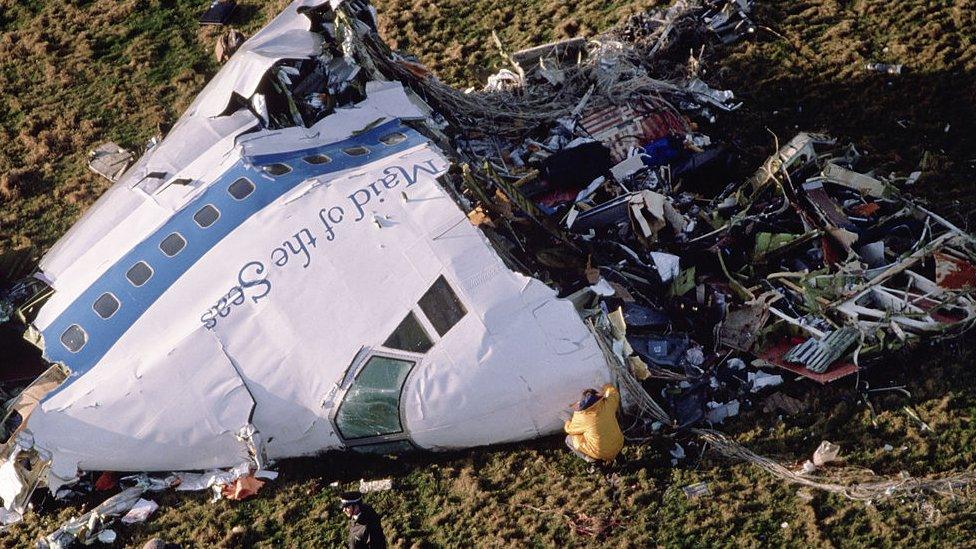
The blast on board the Boeing 747 is the deadliest terrorist incident to have taken place on British soil.
All 259 passengers and crew on board the jumbo jet, bound for New York from London, died while another 11 people were killed in Lockerbie when wreckage destroyed their homes.
The dead were citizens of 21 different countries, including 190 Americans.
In 2001 Abdelbaset al-Megrahi was convicted of bombing the flight after standing trial at a specially convened Scottish court in the Netherlands.
He was the only man to be convicted over the attack.
Megrahi was jailed for life but was released on compassionate grounds by the Scottish government in 2009 after being diagnosed with cancer. He died in Libya in 2012.
On Sunday Scotland's prosecution service confirmed Mr Masud was in the hands of the American authorities. He appeared in a Federal Court in Washington a day later.
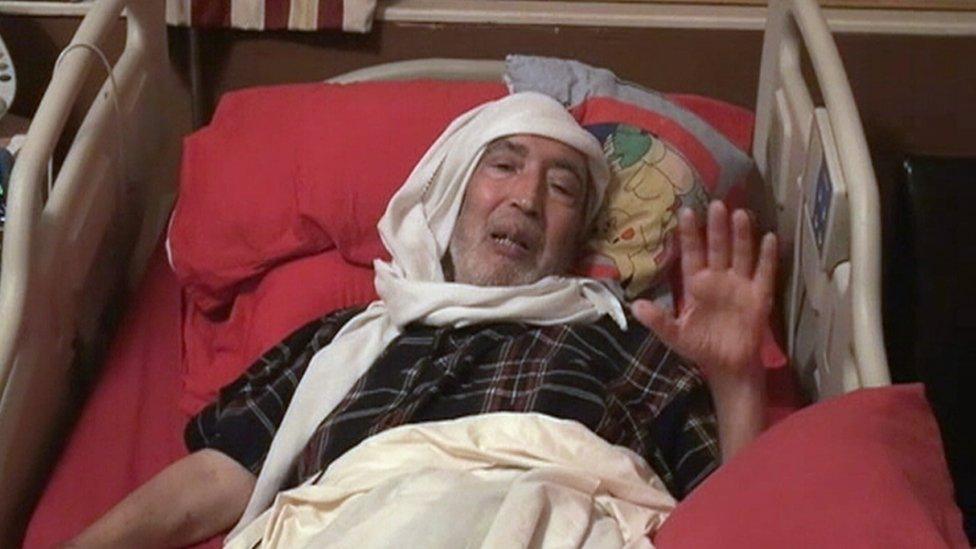
Megrahi continued to protest his innocence until his death in Libya in 2012
The US alleges that Mr Masud was a Libyan intelligence operative and played a key role in the attack.
He is the first person charged on US soil in connection with the attack.
The case against Mr Masud partly rests on an interview he gave to Libyan officials in 2012 after he was taken into custody following the overthrow of Muammar Gaddafi's government.
In the interview, he admitted building the bomb used in the attack and setting its timer to explode while the aircraft was in flight.
Mr Masud also claimed that Gaddafi had thanked him and two co-conspirators "for their successful attack" on the US.
A number of observers have voiced concerns that the confession may have been coerced in the chaotic months following the regime's fall, when Libya did not have a fully functioning legal system.
What are the handover claims about?
It is claimed that armed men kidnapped Mr Masud from his home before giving him to a second militia.
Tim Eaton, a senior research fellow at independent policy institute Chatham House, said both of the groups are linked to the Tripoli-based Government of National Unity (GNU).
Mr Easton said: "The exact nature of the discussions between US and Libyan officials remains quite murky.
"It's unclear exactly which channels were used.
"The Libyan attorney general has denied issuing an arrest warrant and has indicated that he believes some of the actions to be illegal."
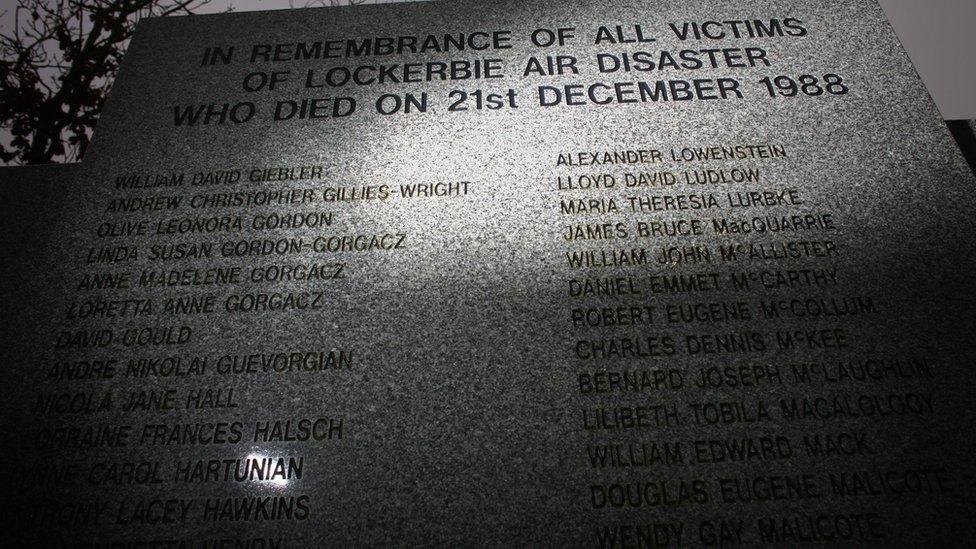
Jalel Harchaoui, associate fellow at defence thinktank the Royal United Services Institute, said Mr Masud was taken from Libya and handed to US officials in Malta.
He said: "The Americans were waiting for delivery of their gift and basically took the person.
"The delivery happened outside of Libya, so the foreign states are fine because nobody can blame them for intruding physically on Libyan soil.
"It doesn't matter from the US perspective where the suspect was gotten and how he was gotten."
On Monday, the US Secretary of State Antony Blinken said the prosecution of Mr Masud was "the product of years of cooperation between US and Scottish authorities and the efforts of Libyan authorities over many years."
And the head of Scotland's prosecution service told the Scottish Parliament on Tuesday that she had received "confirmation that Mr Masud was transferred to US custody on a lawful basis."
Lord Advocate Dorothy Bain KC told MSPs the Americans had made a formal extradition request to Libya in March 2021.
Mr Masud's abduction from his home in Tripoli was reported by his family on 18 November, 10 days after the US Ambassador to Libya Richard Norland held talks with GNU Prime Minister Abdul Hamid al-Dbeibeh.
The US Department of Justice has been approached for comment.
Related topics
- Published12 December 2022
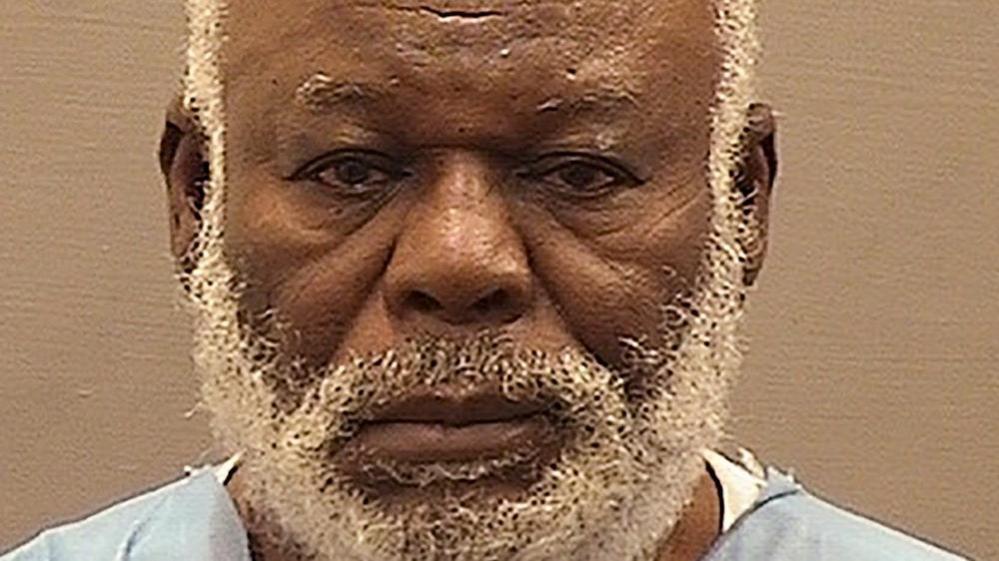
- Published11 December 2022
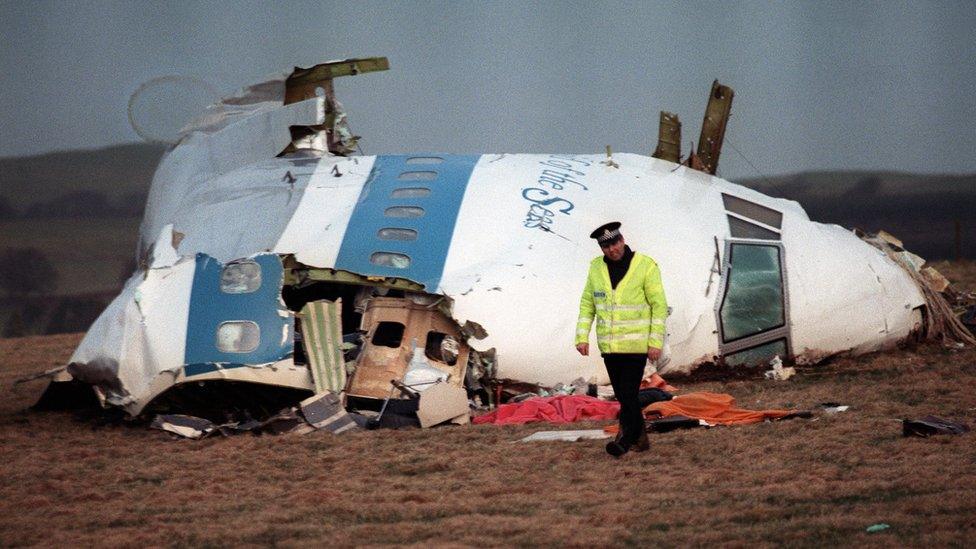
- Published12 December 2022
